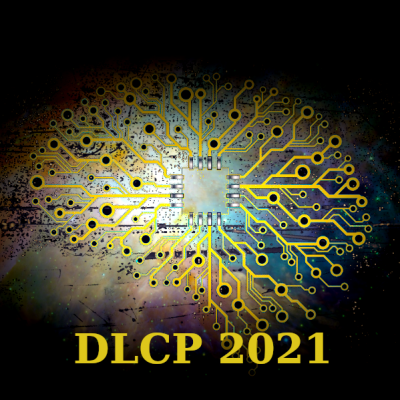
Moscow, Russia
published January 12, 2022
The workshop primarily focuses on the use of machine learning in cosmic-ray astrophysics, but is not limited to this area. Topics of interest are various applications of artificial neural networks to physical problems, as well as the development of new modern machine learning methods for analyzing various scientific data, including big data.
Organizers
• Karlsruhe Institute of Technology (Karlsruhe, Germany)
• D.V. Skobeltsyn Institute of Nuclear Physics, M.V. Lomonosov Moscow State University (Moscow, Russia)
• Matrosov Institute for System Dynamics and Control Theory SB RAS (Irkutsk, Russia)
The main topics
• Modern machine learning method in physics
• Deep learning in cosmic ray astrophysics
• Generative adversarial network for modelling of physics phenomena
• Multi-messenger data analysis in astroparticle physics
• Application in biology and other natural sciences
• Modern trends in machine learning
Editorial Board
- Andrey Demichev
Skobeltsyn Institute for Nuclear Physics Moscow State University - Andreas Haungs
Karlsruhe Institute of Technology, Institute for Astroparticle Physics (IAP) - Vlacheslav Ilyin
NRC Kurchatov Institute, Russia - Alexander Kryukov
Lomonosov Moscow State University, Skobeltsyn Institute of Nuclear Physics, Russia - Alexey Shigarov
Institute for System Dynamics and Control Theory, SB RAS, Russia

| Sessions |
|---|
| Editorial |
| Regular papers |
| Short papers |
| Editorial |
|---|
|
The 5th International Workshop on Deep Learning in Computational Physics – DLCP-2021
|
| Regular papers |
|
Equivariant Gaussian Processes as Limiting Convolutional Networks with Infinite Number of Channels
|
|
Neural Network Solution of Inverse Problems of Geological Prospecting with Discrete Output
|
|
Graph Neural Networks and Application for Cosmic-Ray Analysis
|
|
Artificial Neural Networks for the Identification of Partial Differential Equations of Land Surface Schemes in Climate Models
|
|
Evaluation of Machine Learning Methods for Relation Extraction Between Drug Adverse Effects and Medications in Russian Texts of Internet User Reviews
|
|
Using Modern Machine Learning Methods on KASCADE Data for Outreach and Education
|
|
Gamma/Hadron Separation for a Ground Based IACT in Experiment TAIGA Using Machine Learning Methods
|
| Short papers |
|
Legacy of Tunka-Rex Software and Data
|
|
Modeling Images of Proton Events for the TAIGA Project Using a Generative Adversaria Network: Features of the Network Architecture and the Learning Process
|
|
Application of Deep Learning Technique to an Analysis of Hard Scattering Processes at Colliders
|
|
Use of Conditional Generative Variational Autoencoder Networks to Improve Representativity of Data in Optical Spectroscopy
|
|
A Convolutional Hierarchical Neural Network Classifier
|
|
The Preliminary Results on Analysis of TAIGA-IACT Images Using Convolutional Neural Networks
|
|
Processing Images from Multiple IACTs in the TAIGA Experiment with Convolutional Neural Networks
|
|
The Russian Language Corpus and a Neural Network to Analyse Internet Tweet Reports About Covid-19
|
|
Analysis of the HiSCORE Simulated Events in TAIGA Experiment Using Convolutional Neural Networks
|
